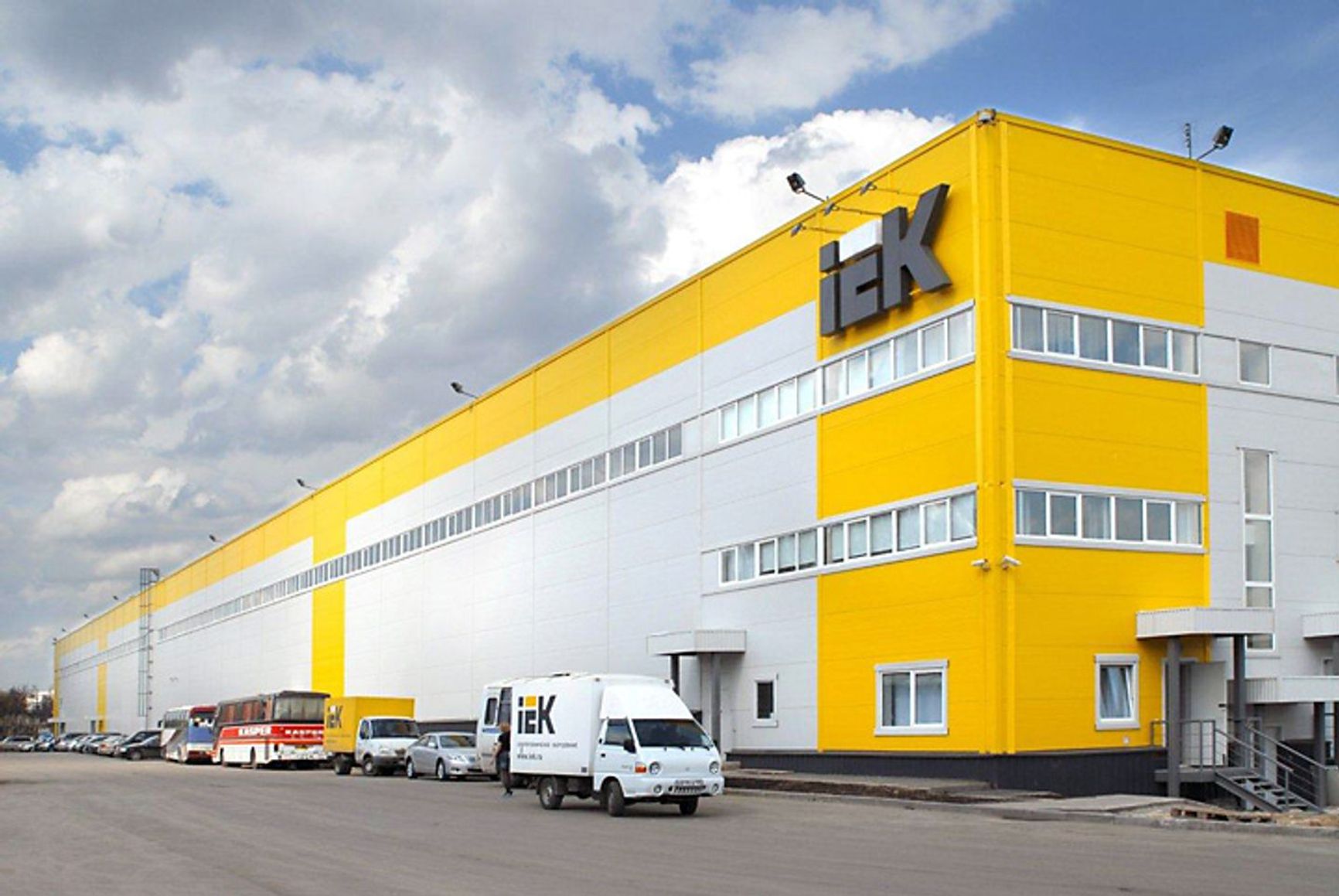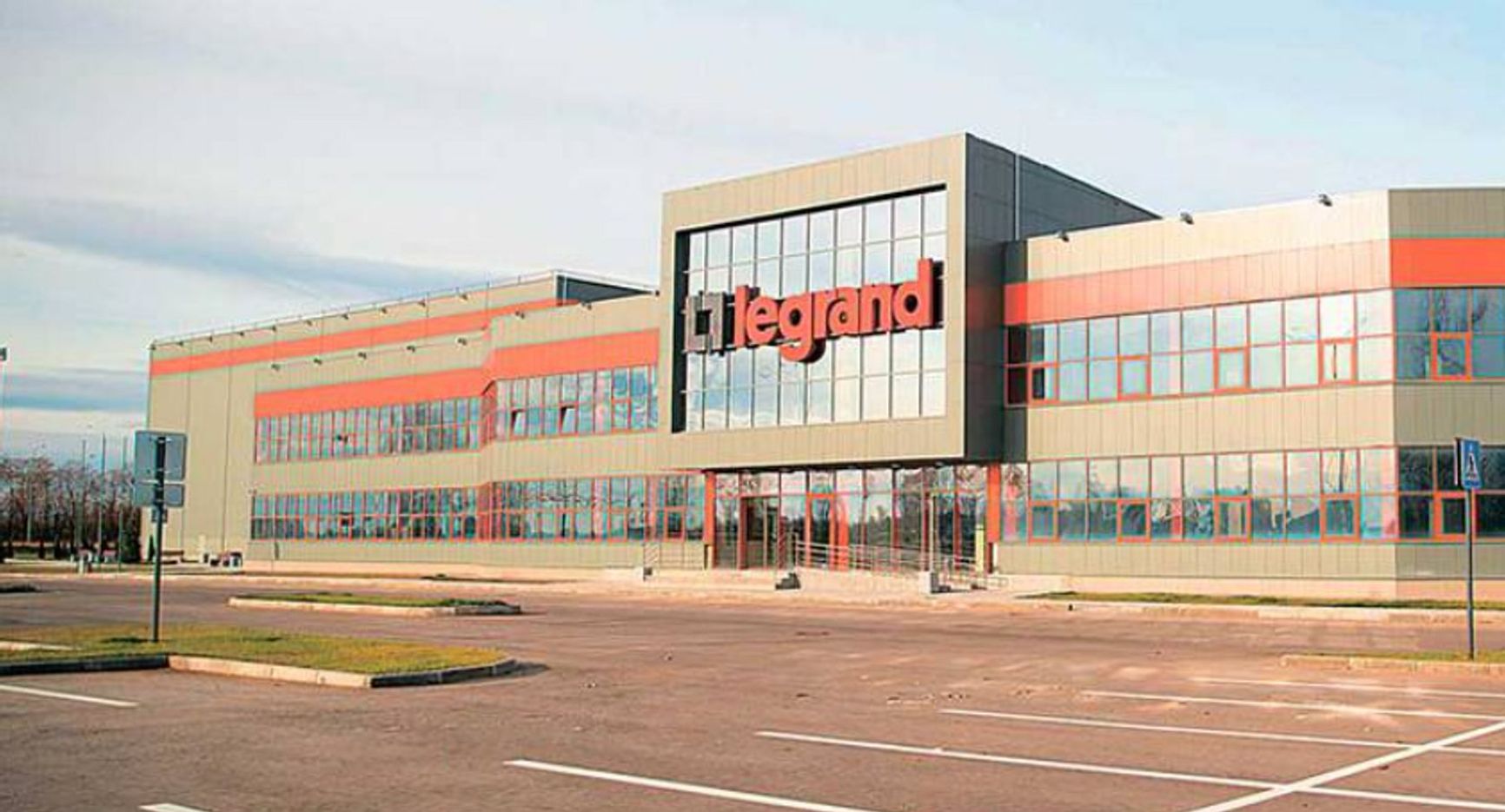

Since the start of its full-scale invasion of Ukraine, the Russian state has confiscated assets worth nearly 2.6 trillion rubles ($33.2 billion). As foreign companies exit the country with nothing, their businesses are often handed over to criminal figures who got their start all the way back in the 1990s. One of them is Sergei “Luchok” Lalakin, an outspoken supporter of the war and the former leader of the once-notorious Podolsk organized crime group. Lalakin acquired the Russian assets of French electrical engineering corporation Legrand after the company withdrew from the Russian market in late 2023. Lalakin’s business conglomerate, IEK, is now preparing for an IPO, while his younger son is expanding the family business in the European Union, representing IEK in the Baltic states.
Content
Moscow region crime boss listed in Ukrainian intelligence database
Gangsters going dark
Making money on wall sockets and light switches
IEK acquires assets during wartime
Who represents IEK holding in the Baltics
Moscow region crime boss listed in Ukrainian intelligence database
The Podolsk gang, which gets its name from the Moscow suburb that it calls home, was once considered one of Russia's largest. It had wide-ranging interests — from restaurants and real estate to gaming companies. The Insider previously ran an in-depth investigation into the group’s activities, including its involvement in contract killings and other serious crimes. Some members of the gang escaped prosecution altogether. Charges against others were either dropped before trial, or else defendants received minimal sentences.
Since the start of Russia’s full-scale invasion of Ukraine, Sergei “Luchok” Lalakin’s business empire has only grown. Despite losing influence in the city of Serpukhov, he has become a beneficiary of lucrative business assets. Lalakin has been such an active proponent of Russia’s war efforts that Ukraine’s Main Directorate of Intelligence (HUR) lists him on its website as being among the “champions of terror.”
The HUR added Lalakin to its list of war collaborators for two main reasons: his charitable foundation Nasledie (“Heritage”) organized aid for people from Podolsk who went to fight in Ukraine, and the football club Vityaz participated in events held in support of the seizure of Ukrainian territory.
Another prominent figure from the same circle is also under sanctions: former Minister of Sport and current State Duma Deputy Boris “Rotan” Ivanyuzhenkov, of the Communist Party.

“Respected businessman” Anatoly Bykov, Sergei Lalakin, and Boris Ivanyuzhenkov
Lalakin and his associates have long been involved in creating and supporting Podolsk’s Vityaz football and hockey clubs, the local tennis academy, MMA fighters, and boxers including high-profile names like Denis Lebedev and Alexander Povetkin. Lalakin also holds positions with the Russian Paralympic Committee and the Union of Russian Paratroopers.
Gangsters going dark
Serpukhov, a town 70 kilometers south of Podolsk, was once considered Lalakin’s turf. Now, however, a new group known as the “Serpukhov gang” has taken root there and forged ties with the Federal Protective Service (FSO). In a report on this group, the media outlet Proekt noted that the Serpukhov Gang had edged Boris Ivanyuzhenkov out of the leadership of the Russian Boxing Federation. A political consultant working on projects in the Moscow region confirmed to The Insider that Lalakin has been losing influence due to competition from his new rival. Another source within the Podolsk city administration added that “respected businessmen” are increasingly distancing themselves from local affairs.
Sergei Lalakin has withdrawn from nearly all his numerous business ventures and is now officially listed as co-founder of only two hunting estates in the Tula region. Meanwhile, the Vityaz hockey club, founded by the Podolsk group, has been excluded from the Kontinental Hockey League due to financial troubles.
But reduced public visibility does not necessarily mean a real loss of assets.
Making money on wall sockets and light switches
In 2017, Sergei Lalakin and Igor Vorshev (also known as Garik) each acquired an 11.7% stake in the major electrical engineering conglomerate IEK. Vorshev and Lalakin have been connected through other legal entities as well. Back in 1995, the business newspaper Kommersant described a pair of brothers named Vorshev as “Luchok’s security ministers,” each commanding their own crews in Urengoy and Kyiv.

IEK facility in Ryazan
IEK, originally called Interelektrokomplekt, was founded in 1999. The company began by importing electrical products from China before shifting to domestic manufacturing in Russia. According to data from the Kontur.Fokus database, IEK’s legal entities were initially registered in Kostroma and the Tula region but later moved to Podolsk. “This company isn’t widely known. I don’t think many people in Podolsk even realize it’s based here — let alone that it’s linked to Luchok,” a Podolsk municipal government source told The Insider.
Within the electrical industry, IEK has established a strong reputation. It collaborates with the Moscow Power Engineering Institute and the Kazan State University of Architecture and Engineering. It also organizes a professional competition for electricians and partners with vocational colleges on career guidance programs for teenagers.
IEK manufactures and sells electrical goods for residential and industrial use and also develops IT solutions in the field of automation. As of 2024, the company employed more than 4,200 people and operated 11 production facilities, turning out over 350 million units annually from acatalog that included more than 30,000 product names.
IEK acquires assets during wartime
By February 24, 2022, IEK had already established itself as one of the leaders in Russia’s electrical engineering market — and since then, the company has only expanded. IEK representatives attribute their business’s growth to the withdrawal of Western competitors from the Russian market.
The company's key acquisition in 2023 was the purchase of assets from the French electrical engineering corporation Legrand, which exited Russia towards the end of that year. IEK’s new property included the Ulyanovsk-based plant Kontraktor, one of the largest facilities of its kind in the country. In addition to Kontraktor, IEK also took control over two more production sites and 20 former Legrand regional offices. According to the holding, its business grew by more than 20% in 2023.
IEK’s biggest 2023 deal was the acquisition of assets from French electrical giant Legrand, which exited Russia
In late 2022, IEK Group also completed the takeover of two Tatarstan-based manufacturers of LED equipment: the Ledel and Fereks plants. That same year, the conglomerate acquired Tefcor, a company in the Moscow region that produces plastic enclosures. In 2023, IEK launched new production facilities in the Tula region and in Troitsk (New Moscow).

In 2024, the company opened another plant in Novosibirsk and began preparations for launching operations in the Kaluga region. That same year, IEK leased roughly 68,000 square meters in the Kuvekino industrial park, which is under development in the Desyonovskoye settlement of New Moscow. The space was leased from the developer Parametr, part of the PIK Group. This deal ranked among the largest warehouse leases in Russia that year. According to estimates from analysts at business outlet Vedomosti, IEK’s annual rental cost for the facility amounts to 810 million rubles ($10.4 million). In the summer of 2025, the company acquired software developer Ambiot.
IEK’s revenue for 2024 reached 51.4 billion rubles ($657.3 million), a 15% increase over the previous year. The company has announced the possibility of going public in 2025.
Who represents IEK holding in the Baltics
At the beginning of 2025, IEK completed a corporate restructuring: the limited liability company IEK Holding LLC was dissolved, and as of January 9, 2025, it was re-registered as IEK Holding JSC. At the time of the transition from an LLC to a JSC, the ownership structure remained the same as it has been since 2017: Igor Vorshev held 11.7% of shares, as did Sergei Lalakin.
The new corporate form does not require public disclosure of shareholders, but the Podolsk group remains involved in IEK’s business under the joint-stock structure.As The Insider can confirm, Sergei Lalakin continues to use the email address [email protected], indicating that his ties to the holding remain intact.
In 2025, IEK continued promoting Greco-Roman wrestling — a sport in which Podolsk city deputy Boris Ivanyuzhenkov holds the title of Master of Sport. Previously, IEK and Lalakin’s charitable foundation Nasledie had jointly invested multiple times in the development of Greco-Roman wrestling in Podolsk.

Igor Lalakin and Artyom Ivanyuzhenkov, younger son of Boris Ivanyuzhenkov
In 2020, Sergei Lalakin transferred an 8.19% stake in IEK subsidiary Elektroff to his younger son, Igor (Lalakin’s elder son, Maksim, runs his own business, unrelated to IEK.) Elektroff manages, among other things, the conglomerate’s new plant in Troitsk. Igor Vorshev also holds a stake in the company.
In 2021, Igor Lalakin graduated from the forensic science department of the law faculty at Moscow State University and has since played an active role in helping his father grow the family business, including in the European Union. Since 2024, he has been a partner in the Latvian company IEK Baltia, which distributes the holding’s products across the Baltic states.